Call (727) 784-5555
Borrower's Resources
Call (727) 543-1753
Mortgage News and Advice
Click on any of our videos below to learn more about your mortgage process. Subscribe to our blog and get notified of new videos.
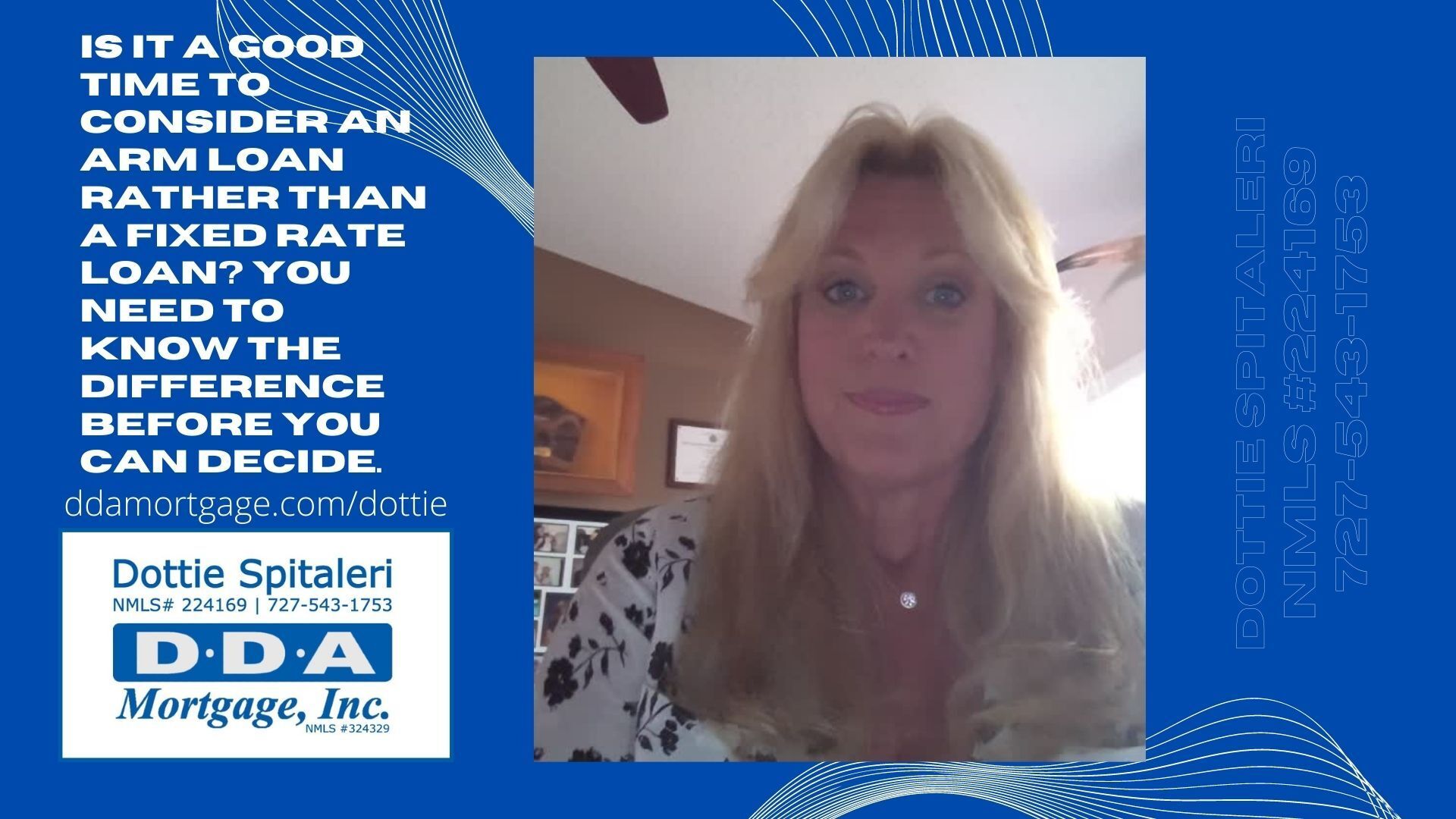
By Dottie Spitaleri
•
03 May, 2022
Interest rates are certainly on the rise and from the looks of the current market, they are rising faster than we would like. An adjustable-rate mortgage may make sense if you are trying to buy with the lowest possible rate without having to pay discount points. This product may keep you in the same purchase price bracket since the fixed rates have gone up quite a bit just in the past few months. Before you make any decisions, you need to further understand how the adjustable-rate mortgage works and if this is the best product for you. What is the difference between an ARM and a fixed rate? A fixed-rate mortgage can offer more certainty because it retains the same interest rate for the life of the loan. That means that your monthly mortgage payment will stay constant for the life of the loan. On the other hand, an ARM may charge less interest during the introductory period, thus offering a lower initial monthly payment. But after that initial period, changing interest rates will impact your payments. If interest rates go down, ARMs can become less expensive than fixed-rate mortgages; but an ARM can become relatively more expensive if rates go up. How does the adjustable-rate mortgage work? ARMs are long-term home loans with two different periods, called the fixed period and the adjustable period. Fixed period: First, there’s an initial fixed-rate period (typically the first 3, 5, 7, or 10 years of the loan) in which your interest rate won’t change. Adjustment period: Then, there’s a period in which your interest rate can go up or down based on changes in the benchmark. Mortgage rates are determined by a variety of factors. These include personal factors like your credit score and the broader impacts of economic conditions. Your rate is fixed at its introductory rate in this example, 3.33 percent. After five years, your rate can reset once a year. The new rate depends on several factors such as the index on which your rate is based, the margin the bank adds to your index, and your loan caps. So, if your loan caps limit your increase to two percent, the highest rate you can get in Year 6 is 5.33 percent. In the real estate industry, you may see the term 5/1 (2/2/5) used to refer to a 5/1 ARM. The second set of numbers - 2/2/5 - refers to details of the rate caps. These include: Initial adjustment cap: The first “2” is the cap, or limit, on how much your first reset can adjust your interest rate. In other words, at the first reset, after the 5-year introductory period, your ARM may reset your interest rate by 2% in Year 6. Subsequent adjustment cap: The second “2” is the limit on how much your subsequent rate resets can increase your interest rate. Generally, 2% is the standard subsequent adjustment cap. That means that in Year 7, your interest rate may rise again by as much as 2%. Lifetime adjustment cap: This is the cap that tells you how much the interest rate may increase in total over the lifetime of the loan. In our example, in Year 8 and thereafter, the interest rate can only increase by 1% total: 5% (total lifetime cap) - 2% (Year 1 adjustment) - 2% (Year 2 adjustment) = 1% Most ARMs offer a 5% lifetime adjustment cap, but there are higher lifetime caps that could ultimately cost you much more. If you’re considering an ARM, make sure you completely understand how rate cap quotes are formatted and how high your monthly payments could get if interest rates climb. Advantages Of an Adjustable-Rate Mortgage Adjustable-rate mortgages can be the right move for borrowers hoping to enjoy the lowest possible interest rate. Many lenders are willing to provide relatively low rates for the initial period. And you can tap into those savings. Although it may feel like a teaser rate, your budget will enjoy the initial low monthly payments. With that, you may be able to put more toward your principal each month. First-time homebuyers can also enjoy these benefits because you are planning to upgrade to a larger home when you can. If those plans allow you to sell the original home before the interest rate begins to fluctuate, then the risks of an ARM are relatively minimal. The flexibility you can build into your budget with the initial lower monthly payments offered by an ARM gives you the chance to build your savings and work toward other financial goals. Although there is the looming chance of an interest rate hike after the initial period, you can build savings along the way to safeguard your finances against this possibility. Of course, there is always the risk that you won’t be able to sell the house before your rate adjusts. If that happens, you may want to consider refinancing into a fixed rate or a new adjustable-rate mortgage. However, you’re still running the risk that interest rates will have increased at that point. If you are considering an adjustable-rate mortgage you will need to get with me so we can take a deeper look into your finances to make sure that this is the right product for your needs. Please call me for a free consultation at 727-543-1753 . Dottie Spitaleri NMLS# 224169
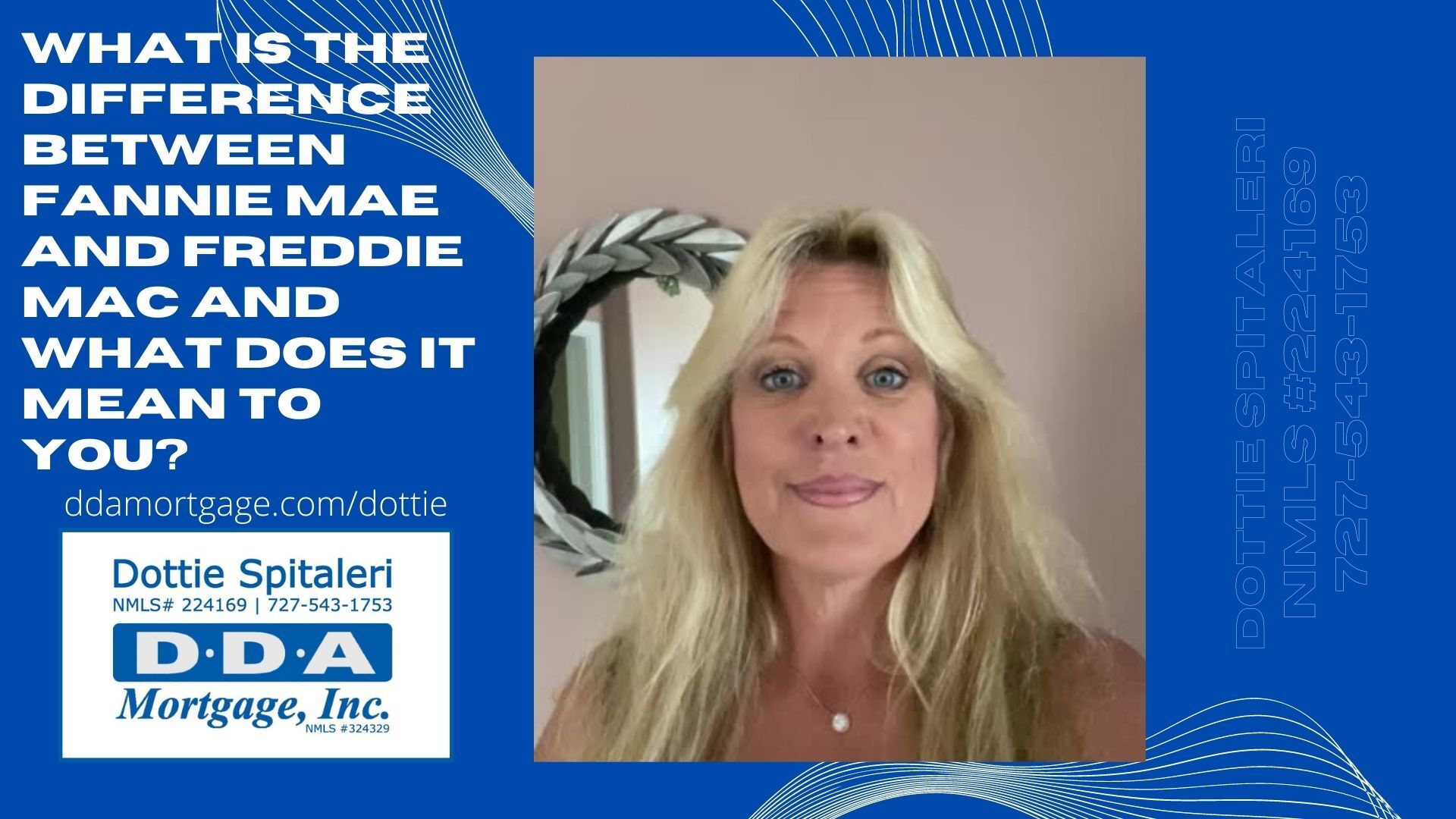
By Dottie Spitaleri
•
19 Apr, 2022
Fannie Mae and Freddie Mac are both government sponsored enterprises that buy and sell home loans on the secondary market. They are both regulated by the Federal Housing Finance Agency. Fannie Mae buys from larger commercial banks whereas Freddie Mac buys their loans from much smaller banks. The two helps make affordable financing available to home buyers by providing mortgage lenders with liquidity. Both entities must be conforming loans meaning they must meet certain criteria standards for it to be eligible for purchase by Fannie Mae and Freddie Mac. These requirements include credit scores, debt to income ratios, loan to value and several other factors. The loan amount must meet the conforming loan limit set forth by the agencies. These loan limits do change year to year. The limit for 2022 is set at $647,200.00 and are higher in certain high-cost areas. If your loan amount is higher than what is set, then your loan will fall into a Jumbo loan which is not a conforming loan and has different guidelines that need to be met. What does this mean for you? They both create affordable financing options. They promote competition in the market meaning competitive rates and competitive loan requirements. One or the other may have more leniency in one area or the other which makes it possible to obtain financing depending on your needs. No one buyer is “cookie cutter”, everyone has a unique financial footprint, and this is where the differences in these two enterprises come into play. Please call me for a free consultation at 727-543-1753 or visit ddamortgage.com/Dottie for more information. Dottie Spitaleri NMLS# 224169
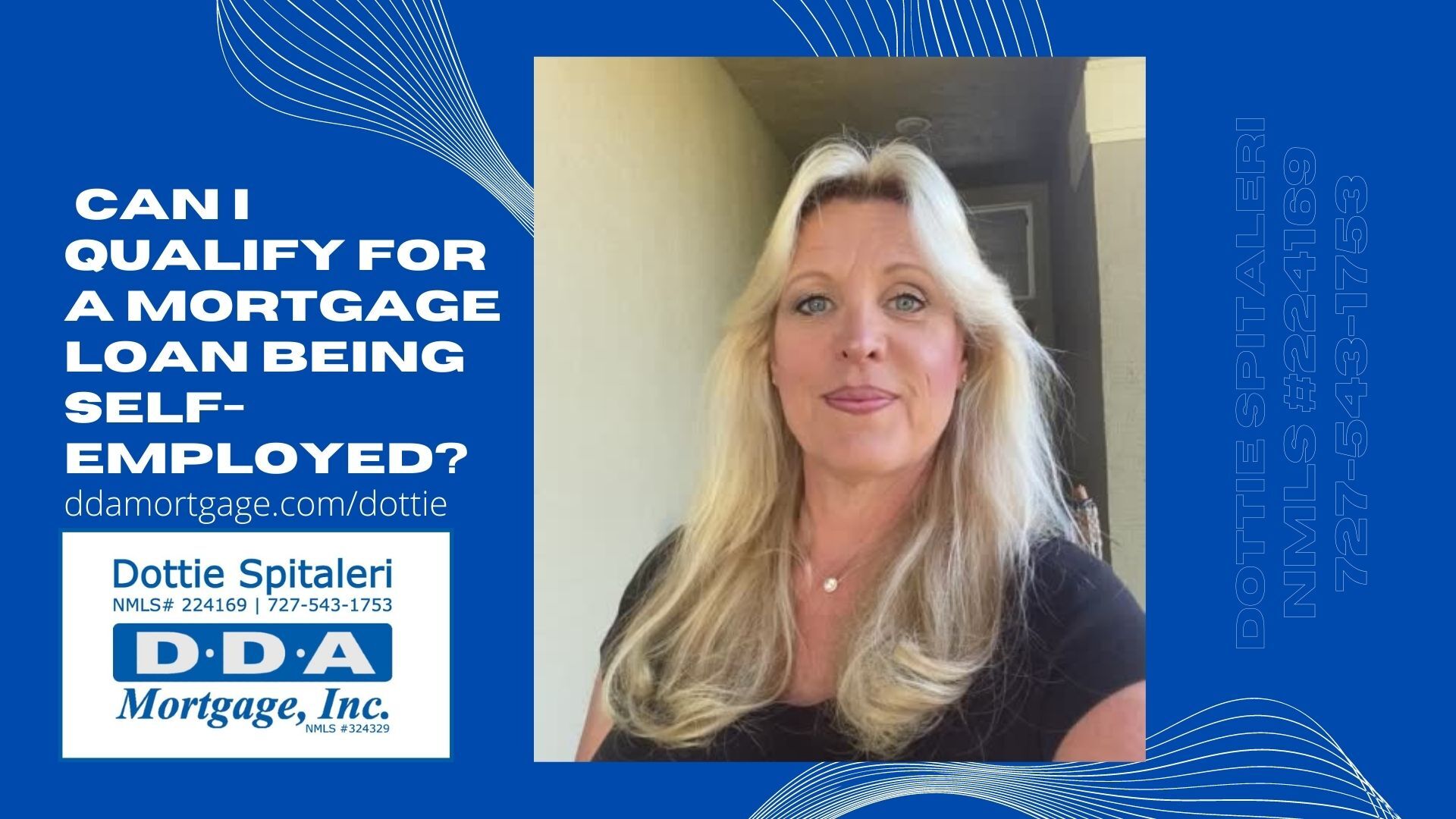
By Dottie Spitaleri
•
13 Apr, 2022
The short answer is yes you can, but you will need to provide a little more documentation than the average W-2 buyer. Here’s what you need to know to ensure you have sufficient documentation to support income and income stability. Self-employed mortgage borrowers can apply for all the same loans “traditionally” employed borrowers can. There are no extra requirements for self-employed mortgage loans. You’re held to the same standards for credit, debt, down payment, and income as other applicants. The part that can be tough is documenting your income. Most mortgage lenders require at least two years of steady self-employment before you can qualify for a home loan. Lenders define “self-employed” as a borrower who has an ownership interest of 25% or more in a business, or one who is not a W-2 employee. However, there are exceptions to the two-year rule. You might qualify with just one year of self-employment if you can show a two-year track record in a similar line of work. You’ll need to document an equal or greater income in the new role compared to the W2 position. Or if you have owned the same business for the past 5 years and show consistent income. If you’ve been self-employed for less than one year, you’re not likely to qualify for a home loan. Documents required for income review are two years of personal and business tax returns, YTD Profit and Loss statement, balance sheet, and business license. Underwriters will use the tax returns as a tool to determine your monthly income and to review for income inconsistencies. They will look to make sure that the income is not declining which will cause concern. Underwriters use a somewhat complicated formula to come up with “qualifying” income for self-employed borrowers. They start with your taxable income and add back certain deductions like depreciation since that is not an actual expense that comes out of your bank account. Business owners and other self-employed workers often take as many deductions as they can. While this can save you a lot of money with income tax, it can also hurt you when it comes to your mortgage application. There are some alternate types of financing programs that may help increase your monthly qualifying income such as a bank statement program. Some lenders offer a 12-month and 24-month program. This is typically calculated from the business accounts and can help increase your buying power. As you can see this can be rather complicated and should be reviewed with a mortgage professional prior to shopping or going into a contract for a home. Please call me for a free consultation at 727-543-1753 or visit ddamortgage.com/Dottie for more information. Dottie Spitaleri NMLS# 224169
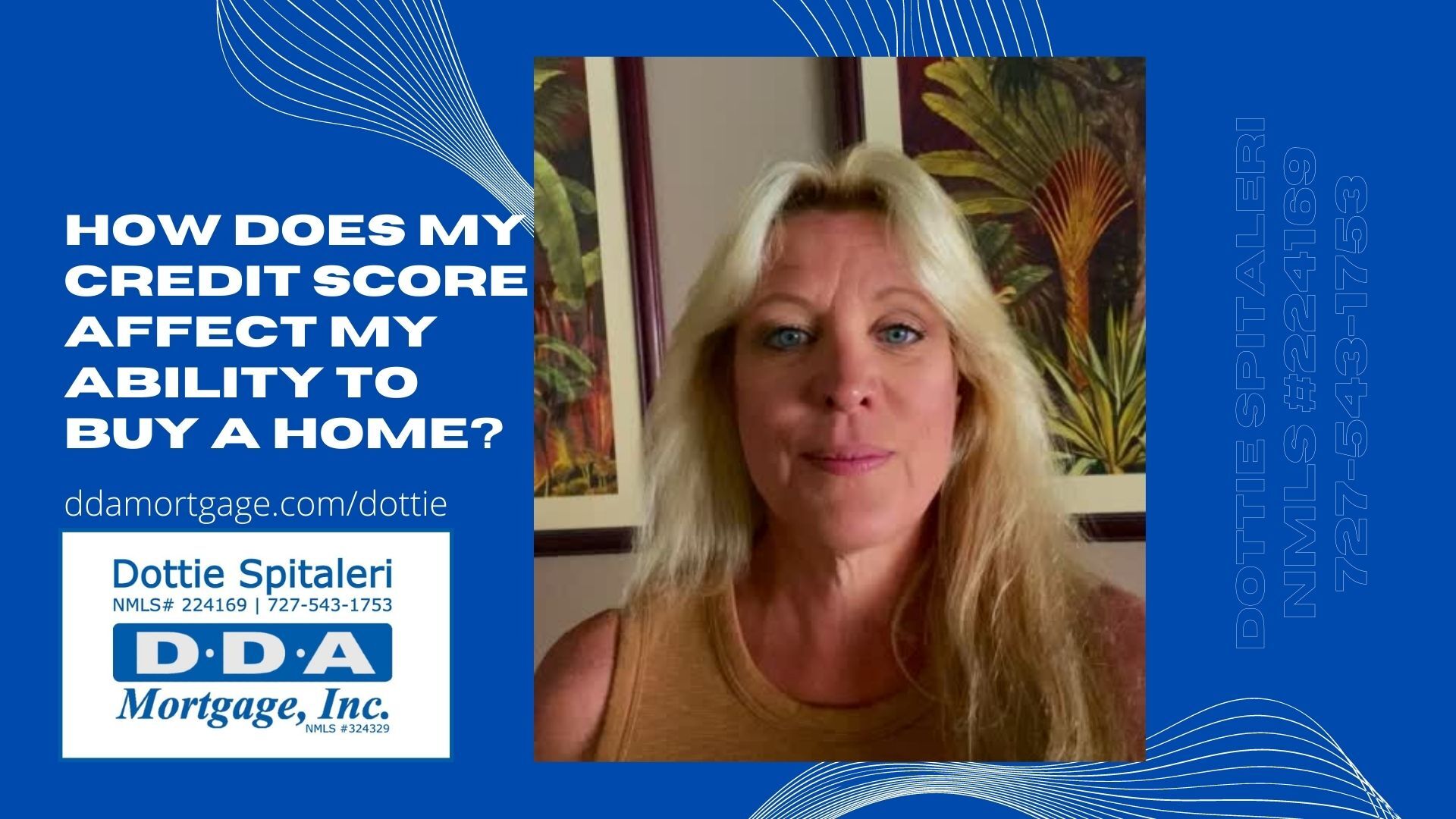
By Dottie Spitaleri
•
06 Apr, 2022
The short answer, the better the credit score the lower the interest rate. A lower interest rate allows you to qualify for a larger loan amount or pay less each month. Here’s what you need to know and what you need to do to insure your credit score is accurate and you have the best score. Your credit score is calculated off of the FICO scoring model and is derived from the information on your credit reports, which are compiled by credit reporting companies. The scoring model consists of 35% payment history, 30% amount of debt relative to credit limits, 15% age of credit, 10% inquiries, 10% whether you have more than one type of credit such as revolving credit and installment credit. It is a good idea to make sure everything is reporting correctly before you have it pulled for a mortgage application. You can access your free credit report at www.annualcreditreport.com . Review the personal information section, public records section and finally your credit accounts. Make sure that the creditors are reporting your payment history correctly and correct any misinformation such as late payments, outstanding collections, liens and judgements. It’s a good idea to discuss any concerns with your lender prior to having your credit report pulled. Sometimes paying off a collection will negatively affect your credit score. Reviewing the data for accuracy will ensure that you will get the best possible rate and loan program with the score you have. Please call me for a free consultation at 727-543-1753 or visit ddamortgage.com/Dottie for more information. Dottie Spitaleri NMLS# 224169
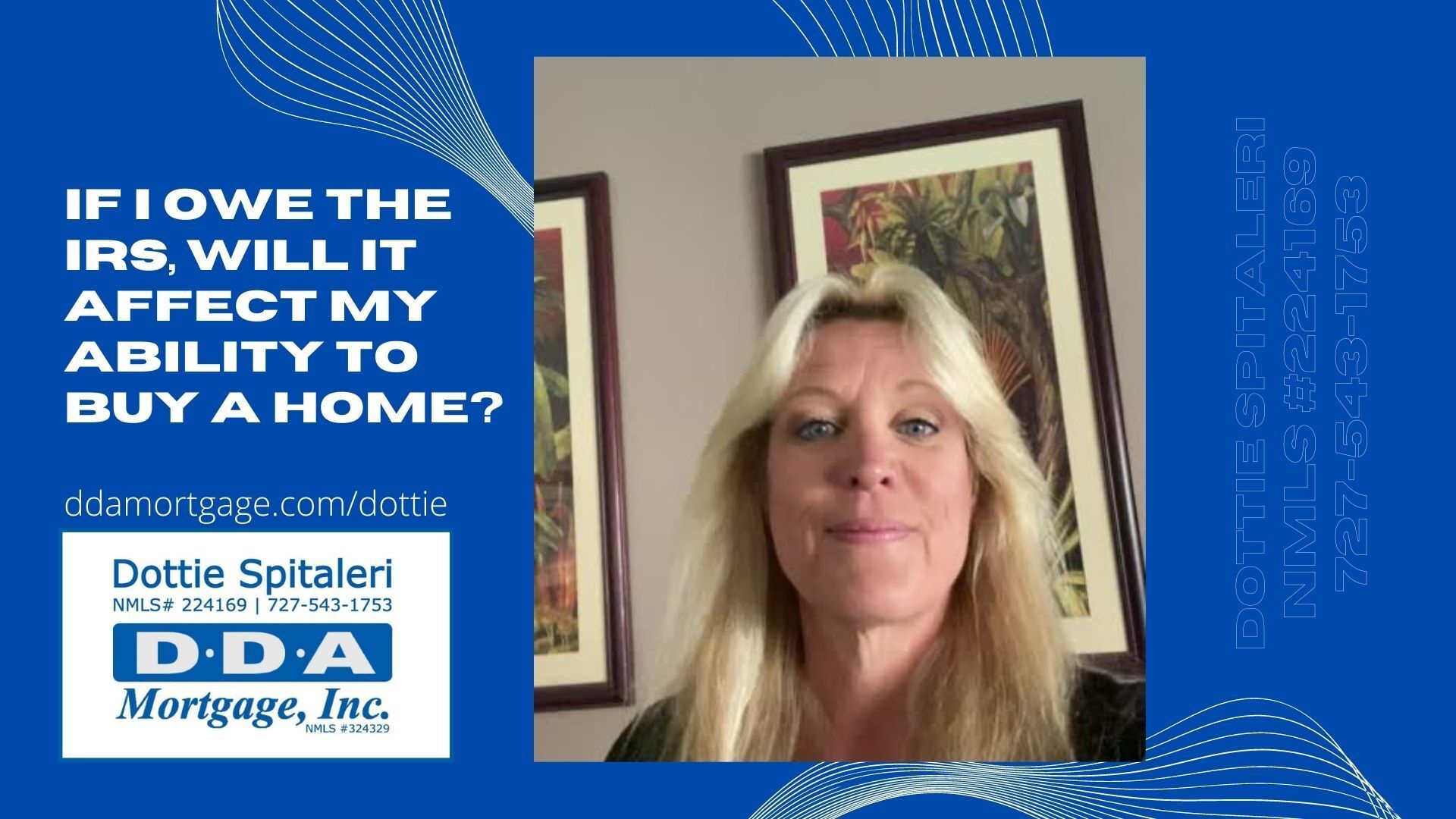
By Dottie Spitaleri
•
30 Mar, 2022
Do you owe the IRS? Will this affect your ability to buy a home? The answer is No provided you either pay the IRS in full or request the payment program through the IRS. Once you are in the program, you will need to make 3 consecutive months payments on-time. This will allow you to move forward with the home purchase provided your debt to income ratios support the payment and guidelines. If you need help understanding your options, please give me a call (727) 543-1753 or visit ddamortgage.com/Dottie for more information.
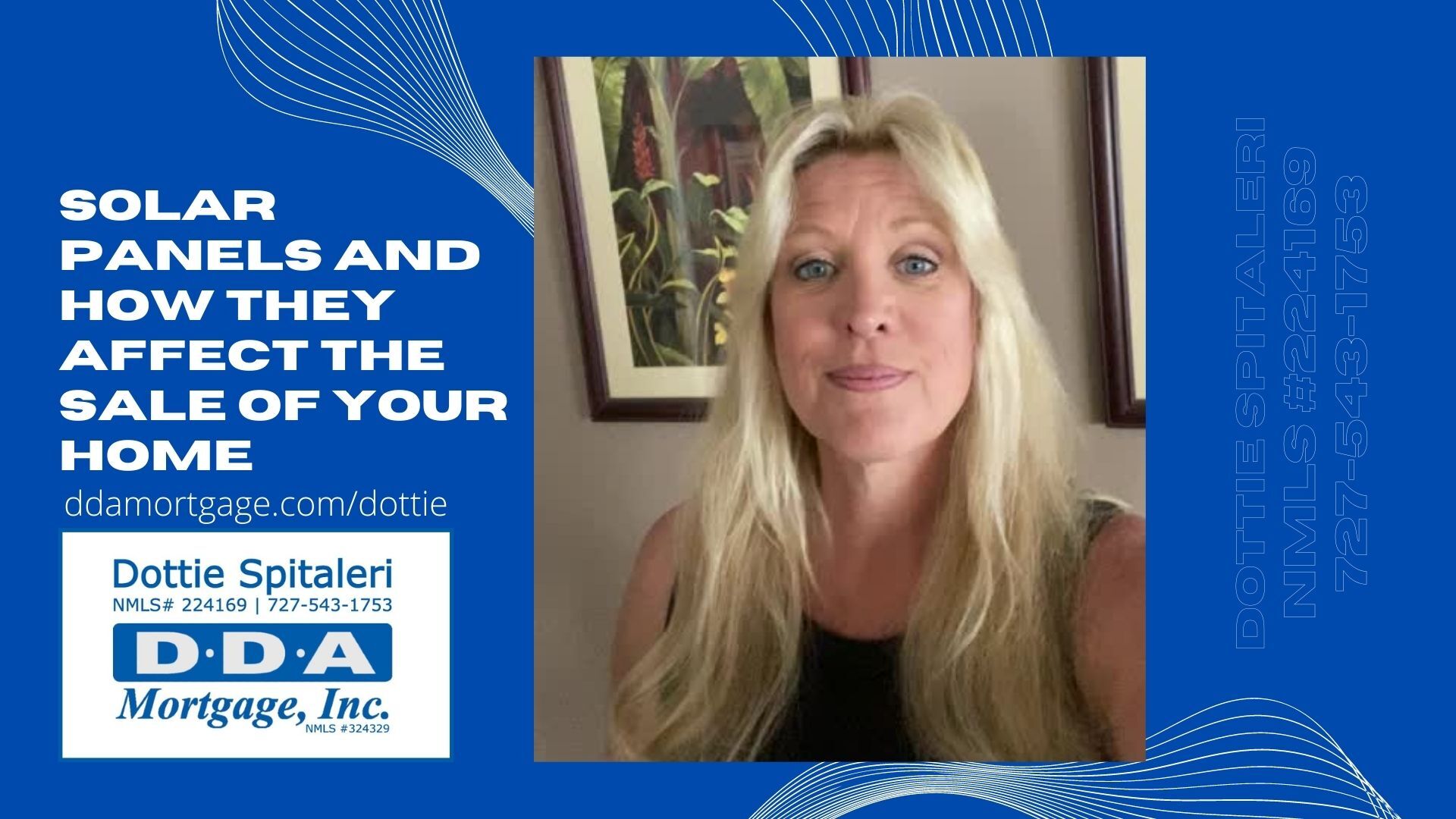
By Dottie Spitaleri
•
16 Mar, 2022
When you sell your home, there may be a lien on the title for your solar panels. If the panels are not paid for, you need to pay them off. The amount is based on what you owe. Pay at time of closing. If you have a loan for the panels, you will have to pay off the loan. You can do this yourself or transfer it to the new owners. However, buyers are rarely willing to take over payments prior to owning the house. Unfortunately, to close on the home, you need a clear title, therefore, the buyers would need to take over the loan prior to buying the home. You can see the catch-22 here. Solar panels will have a lien on your house. All solar systems have a lien against them because they are part of the house. This means that if you do not pay for your system in full before attempting to sell it; there will be a lien against your house until it is paid off. Lender won't close on a house with a lien All solar systems require legal paperwork and filing with the title company. Your lender may not allow you to close on a home with an unpaid solar system due to this lien as they need a clear title to close. The added value of solar panels Some buyers might prefer a home with solar panels. However, they do not add apprised value to your home. Much like nice landscaping, panels are a preference not an asset. If you are buying a home with Solar Panels, or are in marketing for a new home. Contact me, (727) 543-1753 . Or visit https://www.ddamortgage.com/dottie for more information.


